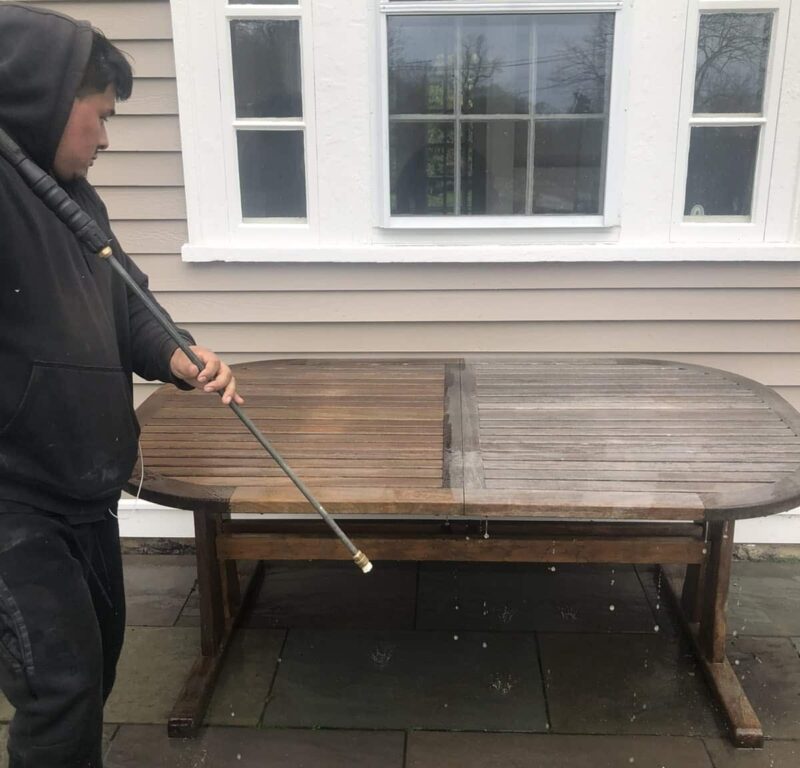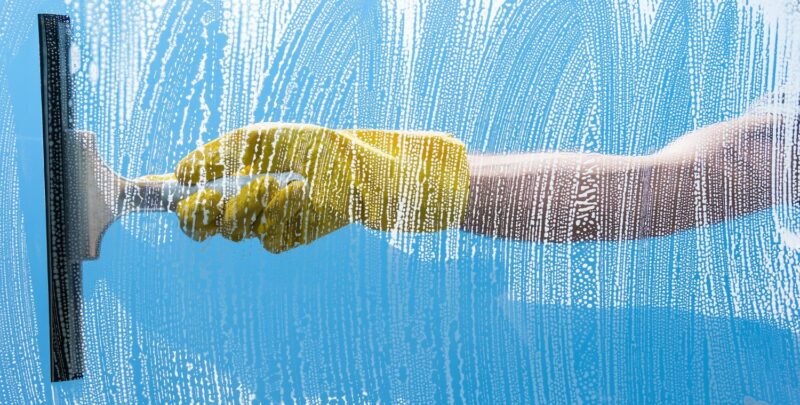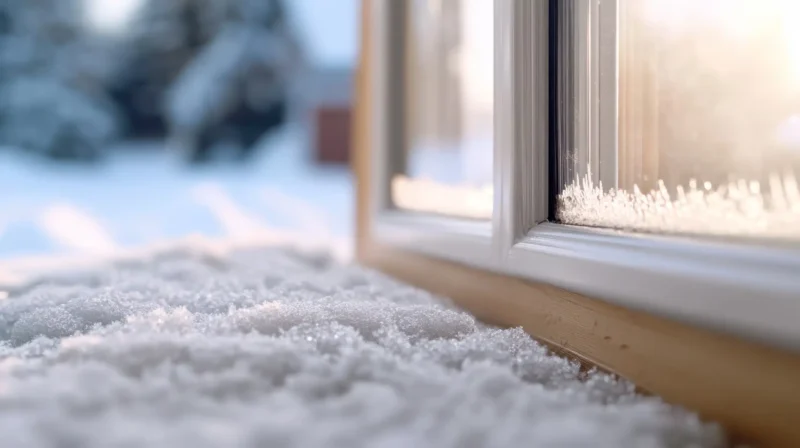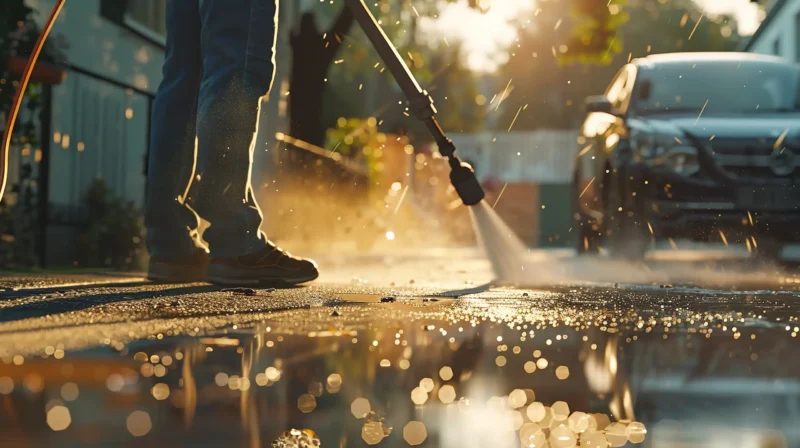Maintaining a clean exterior is crucial for every homeowner, as it enhances the aesthetic appeal and helps preserve the integrity of the surfaces. Over time, dirt, grime, mold, and other pollutants can accumulate on the exterior of your home, leading to a less-than-desirable appearance and potential damage. Two popular methods for achieving a pristine exterior are pressure and power washing. Both techniques are highly effective at removing stubborn dirt, grime, and stains from various surfaces, thus significantly enhancing your home’s curb appeal.
Despite their similarities in the fundamental concept of using water to clean surfaces, there are distinct differences between power washing vs pressure washing that can impact their suitability for different cleaning tasks. Understanding these differences is essential for selecting the right method for your needs. In this article, we’ll delve into the nuances of pressure washing vs power washing, exploring their unique features, applications, and benefits to help you make an informed decision and achieve the best results for your property.
What Is Power Washing
Power washing uses highly pressurized water combined with heated water to clean surfaces. The key distinction between a power and a pressure wash lies in the water temperature. This incorporates a heating element, making it particularly effective for removing tough stains, such as oil and grease, from surfaces like driveways, garage floors, and heavily soiled areas. The high temperature of the water not only aids in breaking down stubborn contaminants but also accelerates the cleaning process, ensuring a more thorough cleanse. This type of washing is ideal for surfaces that endure heavy traffic and accumulate significant grime.
Furthermore, the heated water can penetrate porous surfaces more effectively, lifting and dissolving embedded dirt that cold water might leave behind. This deep-cleaning ability ensures that surfaces look clean and are free from ingrained pollutants that can deteriorate the material over time.
The heated water can also sanitize surfaces, which is beneficial for areas prone to bacteria and mold growth. This sanitizing effect makes using a power washer an excellent choice for environments where hygiene is paramount, such as outdoor dining areas, playgrounds, and other communal spaces.
What Is Pressure Washing
On the other hand, pressure washing utilizes unheated, highly pressurized water to clean surfaces. This method is excellent for removing loose paint, mildew, dirt, and grime from various surfaces without the need for added heat. The washing process is versatile and can be used on various surfaces, including siding, decks, patios, and sidewalks.
One of the key advantages of this type of wash is its gentler approach compared to a power wash. While it might not be as effective on oil or grease stains as a power washer, a pressure wash is less likely to cause surface damage due to the absence of heated water. This makes it an ideal choice for cleaning delicate materials like painted wood, vinyl siding, and certain types of stone, which the high temperatures of the power washer could damage.
Pressure washing houses is a great way to maintain the cleanliness of your home’s exterior without the risk of heat-related damage. Regular pressure washing siding and other parts of the house can help prevent the buildup of mold and mildew, which can cause long-term damage to your home’s exterior and affect your health. Additionally, pressure washing a house can enhance the home’s appearance by removing stains and discoloration, making your property look well-maintained and inviting. Whether you are preparing to sell your home or simply want to improve its appearance, pressure washing offers an effective and safe solution for keeping your exterior surfaces clean and fresh.
How to Choose the Right Service for Your Needs?
Choosing between power washing vs pressure washing depends on several factors. Both methods have unique advantages, and considering the following points can help you make an informed decision:
- Type of Surface: Delicate surfaces, such as painted wood, shingles, or older structures, may fare better with a pressure wash to avoid damage from heated water. This gentler approach minimizes the risk of stripping paint or causing cracks. Conversely, robust surfaces like concrete driveways, brick walls, and metal structures can withstand a power wash’s intense heat and pressure.
- Condition of the Surface: Surfaces heavily stained with oil, grease, or other stubborn contaminants may require heated water from a power wash. The high-pressure and hot water combination is particularly effective at breaking down and removing these tough stains. In contrast, surfaces with lighter dirt or organic growths like mildew and algae can be effectively cleaned with pressure washing.
- Level of Dirt, Grime, or Stains: A power washer is more effective for deep cleaning and sanitizing. The high temperature of the water kills bacteria, mold, and other harmful microorganisms, providing a sanitized and clean surface. This makes a power wash ideal for areas requiring high cleanliness, such as outdoor dining spaces, playgrounds, and pool areas.
- Safety and Potential for Damage: Consider the surface’s material to avoid potential damage from high temperatures or excessive pressure. A power washer can sometimes be too intense for certain materials, leading to cracks or erosion. Pressure washing a house, with its lower risk of damage, is suitable for regularly maintaining your home’s exterior.
By evaluating these factors, you can choose the most appropriate cleaning method for your needs, ensuring that your surfaces are cleaned effectively and safely.
Consider Hiring a Professional
Choosing between pressure washing vs power washing can be challenging. We hope this article helped you decide which type of washing is best for your property. If you decide to opt for a pressure wash, consider hiring Windows Cleaning Expert! Our team is experienced in exterior house washing and cleaning both residential and commercial buildings, ensuring your property is clean and looks its best. Professionals have the expertise and equipment to clean efficiently and safely, providing peace of mind and excellent results.
When you hire a professional, you benefit from their knowledge of the appropriate pressure levels, cleaning solutions, and techniques for different surfaces. This prevents potential damage that can occur from incorrect usage of high-pressure equipment. Additionally, professional services save you time and effort, allowing you to focus on other important tasks while ensuring your property is thoroughly cleaned.
Let Windows Cleaning Expert take care of your exterior cleaning needs. Our skilled team will deliver a pristine and well-maintained appearance for your property, enhancing its curb appeal and longevity.
FAQ
- Is pressure washing better than power washing?
It depends on the cleaning needs. A pressure wash is ideal for general cleaning and maintaining surfaces like decks, patios, and siding. A power wash, however, uses heated water and is more effective for removing tough stains, grease, and sanitizing areas, making it better for heavily soiled surfaces.
- Is jet wash the same as power wash?
No, jet washing typically refers to using a pressure washer without the heating element. A power washer uses heated water, which makes it more effective for tough stains and sanitizing surfaces. In contrast, a standard jet wash relies solely on high-pressure water to clean.
- What PSI is good for washing a house?
A 1500-3000 PSI house pressure washer is typically effective for most houses. This PSI range ensures the water pressure is strong enough to remove dirt, mold, and grime thoroughly while still being safe enough to prevent damage to the exterior surfaces of your home.




